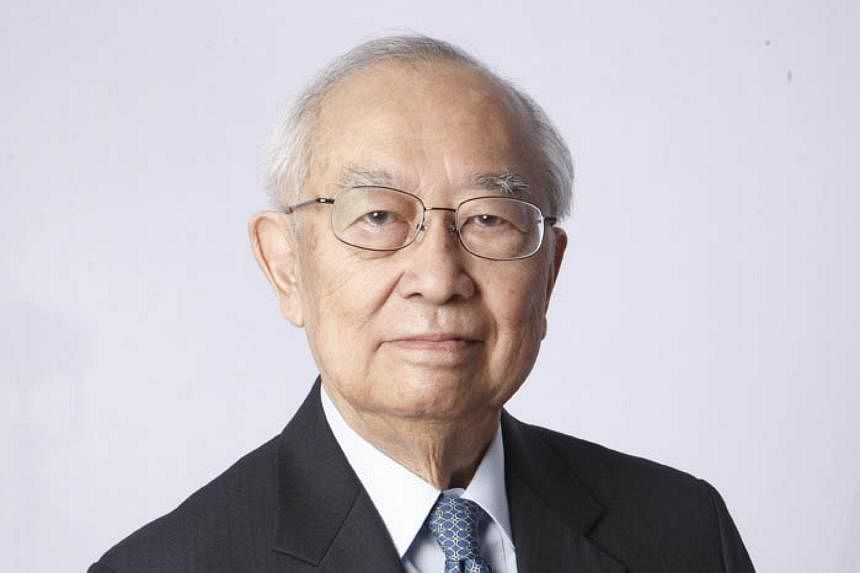SINGAPORE – Former Cabinet minister and Singapore’s longest-serving finance minister Richard Hu Tsu Tau died on Friday. He was 96.
His death was disclosed in a Facebook post on Friday night by Deputy Prime Minister Lawrence Wong.
Mr Wong noted that Dr Hu was Singapore’s longest-serving finance minister. Dr Hu had held the post from 1985 to 2001.
“He stewarded our finances well, and provided a steady hand to steer our economy through the 1997 Asian Financial Crisis,” he said.
He noted that Dr Hu served as a director on the boards of the Monetary Authority of Singapore (MAS) and GIC when they were formed, and had provided exceptional service to both organisations.
He also recounted that he joined the Ministry of Finance (MOF) in 1999 and had worked with Dr Hu, who was then finance minister, on a Budget.
Mr Wong wrote: “(He) asked us to get information on the prices of some key essential items at the wet market so as to get a better feel of the cost of living pressures that people were experiencing then.”
He added: “That is what I remember of Dr Hu – not just thinking about policies in abstract, but making sure that policies led to tangible improvements in people’s lives.
“In his quiet and humble way, he has served Singaporeans with distinction, and made Singapore a better place for us all!”
On Friday night, MOF also posted on Facebook a condolence message to Dr Hu’s family. “We will remember Dr Hu for his many valuable contributions,” the ministry said.
People’s Action Party member Lee Hong Chuang, an IT manager who contested unsuccessfully in the Workers’ Party Hougang stronghold in the 2015 and 2020 general elections, uploaded a photo after attending Dr Hu’s wake on Friday.
He wrote: “I remember the late Dr Richard Hu when I was growing up as a real stalwart of our economy... May you rest in peace.”
Dr Hu was a senior Shell executive before he entered politics in 1984.
He was the director of marketing of Shell Singapore and general manager of Shell West Malaysia – the first Asian to be appointed director in the Shell Group – before he was promoted to chairman of Shell Malaysia in 1974 and Shell Singapore in 1977.
He was a board member of MAS for 26 years, from 1971 to 1997, and was appointed its managing director in 1983 after he retired from Shell.
In 1984, Dr Hu was elected MP for Kreta Ayer constituency and was immediately made trade and industry minister, making him among the few MPs since independence to be appointed to the Cabinet right after winning an election.
He went on to spend 17 years in politics, retiring in 2001 as finance minister.
Dr Hu was associated with several key policies during his term.
He oversaw the reform of Singapore’s financial and banking sectors, which included privatising the Post Office Savings Bank and selling it to DBS Bank.
In 1993, he introduced the goods and services tax (GST) in Parliament to reduce the Government’s dependence on direct taxation as a revenue source.
He was credited with the smooth implementation of GST on April 1, 1994, at the rate of 3 per cent.
In the 1997 Asian Financial Crisis, Dr Hu oversaw the introduction of two off-Budget stimulus packages totalling $12.5 billion to help companies and families affected by the downturn.
This was repeated in 2001 in response to another recession, when an $11.3 billion off-Budget package was drawn up.
Deputy Prime Minister Heng Swee Keat said in a Facebook post that Dr Hu played an instrumental role in transforming Singapore into a leading financial hub.
“His wisdom and foresight shaped our key policies, including the GST, which created a more resilient tax base for Singapore and boosted our international competitiveness,” he wrote.
MAS, which Dr Hu chaired from 1985 to 1997, said in a statement that he upheld a strong commitment to sound monetary policy and prudent currency management.
“This conviction underpinned price stability and confidence in the Singapore dollar during much of the 1980s and 1990s,” it added.
The agency noted that Dr Hu emphasised the high standards of financial regulation and supervision that Singapore is known for.
“He firmly believed that high prudential standards and close supervision were critical for the long-term competitiveness and growth of Singapore’s financial sector.
“He oversaw the overhaul of the securities regulatory framework which facilitated the subsequent development of Singapore’s capital markets,” it said.
“Many of the older staff in MAS fondly remember Dr Hu for his wise and steady leadership,” added MAS.
Besides being Singapore’s longest-serving finance minister,Dr Hu also held other key appointments during his years in the Cabinet, including the ministerial portfolios of health and national development.
After retiring from politics in 2001, he continued to serve on the board of GIC until 2009, and remained an adviser until 2012.
A private funeral for Dr Hu will be held on Sunday at the Mandai Crematorium, Lianhe Zaobao reported.

